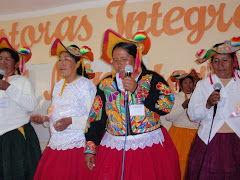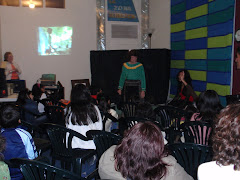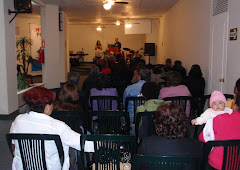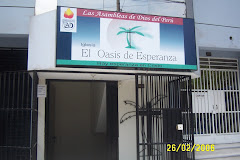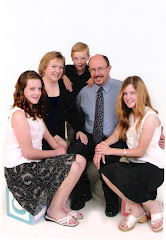For more than 12 years now we have been attempting to educate our listners and supporters on the need for reaching the middle/upper class in Latin America. This is no small task since American society is structured very different from society south of the Rio Grande.
In the United States it is still possible to realize the "American dream." With dedication, hard work and a little luck, people who come from extreme poverty have opportunities to move up the "social ladder." Their success can be defined in terms of wealth, power and influence. A poor lad from a broken home in Hope, Arkansas can still become President of the United States. While most citizens are dissatisfied with the national economy and their spending power as individuals, there is a still a common feeling that most of us are in the same boat since the bulk of the population (80%) identifies with the middle class. 15% would be in the lower class and 5% would be in the upper class.
The situation in Latin America is very different. Society breaks down into the same 3 classes, but the distribution of wealth is very different. In Peru it is closer to 5% upper class, 15% middle class and 80% lower class. This, of course, makes the majority class dependent on the minority class. The government, willing or unwilling, becomes the focal point of unfilled expectations by those in poverty because it is at the top of the social pyramid. Even more difficult to understand is the huge gap that exists between the classes. The gulf between the lower and middle classes is so wide that few can cross it even with educational and cultural "upgrades." The same is true between the middle and upper classes, though the distance is smaller. The passage from poverty to riches in Latin America is the "impossible dream."
In many ways this is similar to the feudal system that dominated society during the Middle Ages. 1000 years ago serfs were the poverty class. The lords were the upper class. The middle class lived in villages. The serfs were servants who worked the land and built the castles and the villages all owned by the lords. The "village people" were shopkeepers, merchants and artisans. Changing your station in life was nearly impossible. You stayed where you were born. Serfs lived to serve. The "village people" were helpers. The beneficiares were the lords. However, in times of emergency all of society looked to the lords for help. The majority had no means of coping with wars, famine or disease.
This understanding is very important for sharing the gospel in Latin America. Some of the first Assemblies of God missionaries arrived in Peru 90 years ago. They started their work among the lower class because in was the largest group of people present and it was also the neediest. During the remainder of the 20th century the church grew, sometimes very rapidly. Today Lima, for example, has nearly 500 Assemblies of God churches and extention points. And yet, all but 2 of these churches are geographically located in the lower class areas of the city. Why? It is very difficult for "serfs" to share the gospel with "lords." The "serfs" may have the desire to share and even the know how to share with the "lords," but they can't change who they are. "Lords" don't listen to "serfs." While the huge protests that take on main plaza of Lima do gain the attention of those who are in power, they do little, if anything, to bring change. Even history teaches us that the numerous revolutions that come and gone throughout Latin America have done very little to help make society a better place to live for the majority population.
We believe God has called us to share the gospel with the middle/upper class of Lima, Peru for several reasons:
1. God loves them and wants them to be a part of His kingdom.
2. As foreigners we have more in common with this group, than their
own lower class who have been unable to reach them with the
gospel. We have a hearing and an opportunity with them.
3. Lives that are truly transformed by the Holy Spirit will change what
they do. People with power and influence can make an impact on
society and reduce the inequality and suffering.
Jesus was a revolutionary, but He focused on transforming hearts first. We want to be a part of a spiritual revolution in Peru that will change society. One way this can happen is for us to share the love of Christ with the influencers of this beautiful country.
















